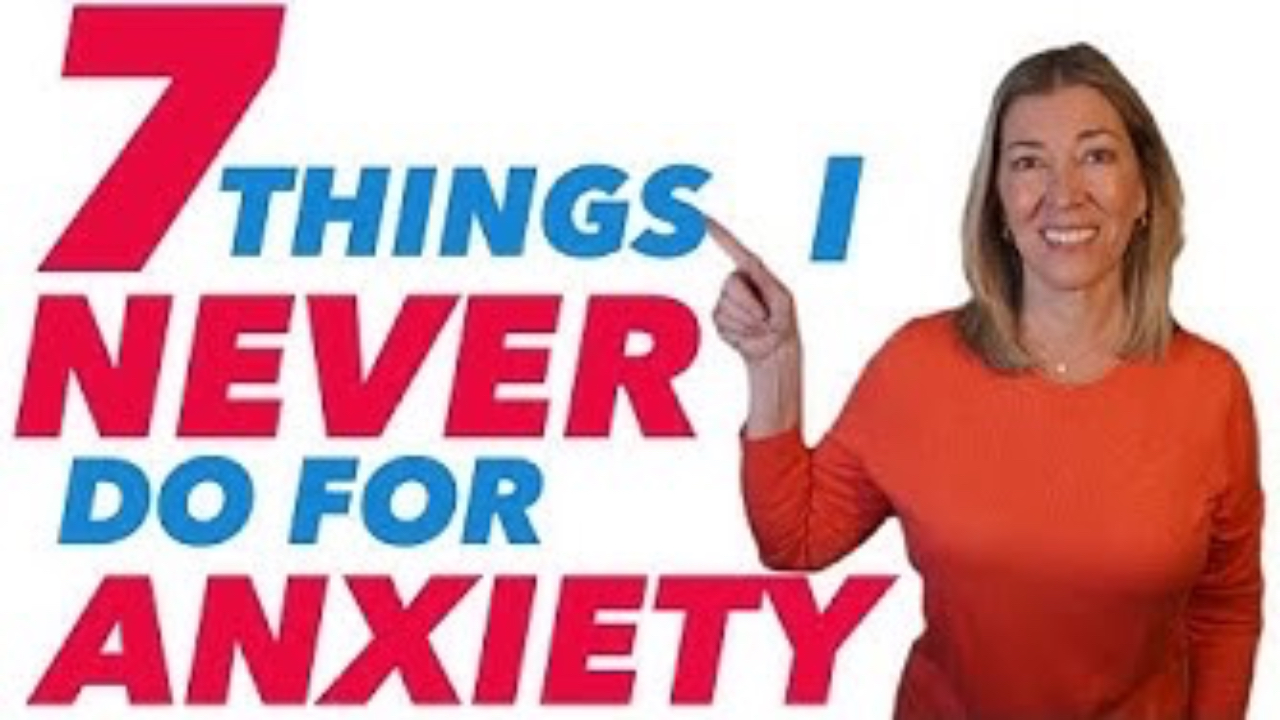
7 Things Not to Do When Anxiety Strikes: Expert Insights
In the fast-paced world we live in, anxiety is a familiar companion. It's the uninvited guest at the party, showing up at the most inconvenient times. But what if we told you that there's a way to deal with anxiety that doesn't involve avoidance or quick fixes? In this blog post, we share seven vital insights into managing anxiety effectively. By understanding and implementing these strategies, you can take charge of your mental well-being and build a healthier relationship with anxiety.
Anxiety is a common human experience, and we all encounter moments of stress and anxiety in our lives. However, how we respond to anxiety can significantly impact our mental well-being. By understanding and avoiding these behaviors, you can prevent the development of anxiety disorders and create a healthier relationship with anxiety.
1. Avoid Changing or Canceling Plans:
One common response to anxiety is the temptation to change or cancel plans. This behavior is known as experiential avoidance, where individuals attempt to suppress unwanted internal experiences such as emotions, thoughts, memories, or bodily sensations. Unfortunately, this avoidance only fuels anxiety disorders like panic disorder, health anxiety, agoraphobia, and other phobias. Instead of avoiding, it's essential to face anxiety head-on and continue with your plans.
2. Steer Clear of Safety Behaviors:
Safety behaviors, such as bringing someone with you when you feel anxious or carrying specific items for reassurance, may provide temporary relief. However, they reinforce the anxiety cycle by sending signals to your brain that you are unsafe without these crutches. Identifying and consciously letting go of safety behaviors is crucial for long-term anxiety management.
3. Be Wary of Breathing Techniques:
While breathing techniques and relaxation exercises can help calm you down in the short term, relying on them during high-anxiety situations can reinforce fear and anxiety in the long run. Instead, use these techniques for overall stress management, not as a quick fix during anxiety or panic episodes. Learning to tolerate anxiety symptoms without attempting to calm yourself down is a more effective approach.
4. Use Anxiety Medications with Caution:
Anxiety medications, specifically benzodiazepines, can be effective for managing anxiety, but they come with potential side effects and withdrawal symptoms. Consult your physician before making any changes to your medication regimen, and be aware that the medical profession is becoming more cautious about prescribing these drugs due to their drawbacks.

Nothing is worse than feeling unsafe in your body, like you are a victim of your fear and not in control. You have come to the right place. Learn how to take back your freedom from high anxiety, bodily sensations and panic.
5. Avoid Catastrophizing Thoughts:
Refrain from telling yourself scary "what if" catastrophizing stories. Anxiety is a natural fight-or-flight response, and it's crucial to remind yourself that you are not in danger during anxious moments. These catastrophic thoughts only exacerbate anxiety and reinforce fear.
6. Limit Seeking Reassurance:
While it's essential to have supportive people in your life, seeking reassurance from family and friends can inadvertently reinforce your anxiety. Well-intentioned individuals may end up doing tasks for you, eroding your self-confidence. Engage in conversations with your loved ones about how their helping behaviors may unintentionally strengthen your anxiety cycle.
7. Don't Constantly Monitor Anxiety Symptoms:
Resist the urge to continuously monitor your anxiety symptoms, such as heart rate, breathing, sweating, or shaking. Monitoring these symptoms can heighten your sensitivity to anxiety and lead to conditions like health anxiety or panic disorder. Instead, teach your brain that these are normal anxiety symptoms that pose no danger.
Anxiety is a formidable opponent, but it's one that can be managed with the right approach. By avoiding common pitfalls like changing plans, relying on safety behaviors, or constantly monitoring symptoms, you can reclaim control over your life. Remember, anxiety is not an insurmountable obstacle; it's a challenge that, with the right tools and mindset, can be conquered. Seek support from professionals if needed, and believe in your ability to navigate the ups and downs of life with confidence and resilience. Your journey to a more anxiety-free life starts now.
Let's Keep in Touch
Subscribe to My Newsletter
We hate SPAM. We will never sell your information, for any reason.







